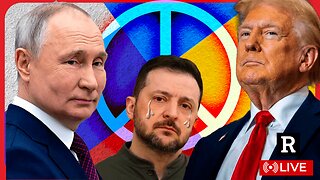Premium Only Content

The Magical Use of Eggs For Weight Loss -to help you lose weight quickly without losing muscle mass.
The egg diet is a weight loss program that requires you to build at least one meal each day around the traditional breakfast staple, the chicken egg. It is a low-calorie, low-carbohydrate, high-protein plan designed to help you lose weight quickly without losing muscle mass.
There are different versions of the egg diet, including an egg-only diet or a boiled egg diet. In all variations of the plan, you'll eat three meals a day with no snacks and drink only water or zero-calorie beverages. More flexible forms of the egg diet include foods like grilled chicken, fish, and steamed veggies but eliminate starchy foods and sugar.
Since there is no one standard egg diet, what you eat will depend on the type you follow. In general, you can expect to eat many eggs, other lean proteins, vegetables, and some fruit. All versions of the egg diet require you to eat primarily egg-based meals. Besides the obvious, eggs, here are some examples of foods you might eat on various egg diets:
Lean Protein
Chicken
Fish
Sirloin steak
Is the Egg Diet a Healthy Choice for You?
Eggs are an excellent source of complete protein. They provide several beneficial vitamins and minerals, including choline and vitamin A.2 Compared to expensive diets that require special powders and supplements, the egg diet is a whole-food approach to weight loss. However, depending on how strictly you follow it, the egg diet is missing essential nutrients, like fiber.
Current dietary guidelines set forth by the U.S. Department of Agriculture include recommendations and tips for a healthy, balanced diet. The following nutrient-dense foods are recommended as part of a healthy diet:1
Beans and legumes (all beans, lentils, peas)
Dairy products (reduced-fat milk, cheese, and yogurt, including fortified soy-based dairy alternatives)
Fruits, especially whole fruits (apples, berries, melon)
Grains, especially whole grains (quinoa, brown rice, oats)
Lean protein (chicken breast, fish, turkey breast, seafood)
Nuts and seeds (walnuts, almonds, sunflower seeds)
Oils (olive oil, avocado oil)
Vegetables of all types and dark, leafy greens (kale, spinach, broccoli, Swiss chard, green beans)
The egg diet does not provide well-rounded nutrition and does not meet USDA dietary guidelines. It is not considered a healthy, long-term diet.
Since eggs only have about 78 calories each, you're unlikely to consume enough to meet your calorie needs each day. There's also a good chance you won't have the energy to maintain regular workouts to support your metabolism on such a restrictive plan.
Overall, this diet contains healthy food, but it’s not a balanced, healthy diet. The boiled-egg diet is extremely restrictive, incredibly low calorie, and faddish. “I don’t think you should be on a diet that requires an obsession with one food,” says Lisa Young, PhD, RDN, the New York City–based author of Finally Full, Finally Slim.
The crux of the diet, eggs, is a food that’s healthy for you — just not as your only or main food. The American Heart Association says that one egg (or two egg whites) per day can be part of a healthy diet.right up arrow “Eggs make a great breakfast. A hard-boiled egg is a nutritious snack, but I think that consuming a variety of foods is a healthier way to eat,” says Dr. Young.
The good thing about eggs is that they’re high in protein. One large boiled egg offers 78 calories, 6 grams (g) of protein, 5 g of fat, 0.6 g of carbohydrates, and 0 g fiber.right up arrow “Eggs are a complete protein and contain nutrients like vitamin D and choline,” says Amy Shapiro, RD, the founder and director of Real Nutrition in New York City. A complete protein is one that contains all the essential amino acids in adequate amounts.right up arrow Choline is a nutrient that helps produce neurotransmitters that regulate memory and mood, among other functions.right up arrow
While some research has linked high-protein breakfasts that contain eggs with helping dieters shed pounds, “there’s nothing magical about eggs for weight loss,” says Shapiro.right up arrow
Side Effects of Eating Mostly Boiled Eggs
If you're looking to lose weight, nutrition experts advise counting calories to meet your goals. The USDA recommends a reduction of 500 calories per day for weight loss.9 On a 2,000-calorie diet, that's around 1,500 calories per day, but this can vary based on age, sex, weight, and level of physical activity. If you're interested in determining your calorie guidelines, you can use a calculator.
Although eggs are nutritious, the egg diet doesn't have enough variety or calories to be considered a healthy or sustainable way of eating. With such restriction, weight regain is likely. You'll also miss out on fiber, calcium, and other essential nutrients by sticking to the egg diet for more than a few days.
-
![[LIVE] Bully | GTA: Vice City | First Playthrough | 8 | Rampage and The Spirit of The Season](https://1a-1791.com/video/fwe1/85/s8/1/W/e/n/4/Wen4x.0kob-small-LIVE-Bully-GTA-Vice-City-Fi.jpg) 3:15:35
3:15:35
Joke65
7 hours ago[LIVE] Bully | GTA: Vice City | First Playthrough | 8 | Rampage and The Spirit of The Season
32.6K -
 3:27:04
3:27:04
Laura Loomer
9 hours agoEP103: Dems Promote Violent Anti-Trump Protests Nationwide
46.2K11 -
 6:50:08
6:50:08
Fairy Mysterious Adventures
7 hours agoStardew with the Rumble crew #16
28K2 -
 1:28:42
1:28:42
Kim Iversen
12 hours agoThe War on Terror Was a Scam? Is Osama Bin Laden Really Dead? SEAL Who Killed Him Breaks It Down.
70.5K132 -
 1:09:44
1:09:44
Slightly Offensive
9 hours ago $11.24 earnedALMOST SERIOUS: How Mass Legal Immigration DESTROYED Australia | Guest: Maria Zeee
67.1K22 -
 2:38:38
2:38:38
TimcastIRL
9 hours agoTrump Orders DOJ To FIRE EVERY Biden Attorney, Calls For CLEAN HOUSE w/Siaka Massaquoi | Timcast IRL
143K94 -
 1:29:31
1:29:31
Glenn Greenwald
12 hours agoGermany's Repressive Speech Crackdown Intensifies; U.S. & Russia Meet in Saudi Arabia and Open Cooperation; Plus: An Amazing Hate Crime in Florida is Buried | SYSTEM UPDATE #408
107K68 -

DLDAfterDark
6 hours ago $1.47 earnedDLD Live! What's Your Typical EDC/Civilian Load Out? Guns & Ammo & EDC?
25K2 -
 1:30:48
1:30:48
Redacted News
13 hours agoBREAKING! TRUMP AND PUTIN NEARING PEACE BUT EUROPEAN WARMONGERS TRYING TO STOP IT | REDACTED
203K269 -
 52:40
52:40
Candace Show Podcast
13 hours agoSaturday Night Lively: What Were They Thinking? | Candace Ep 148
173K162